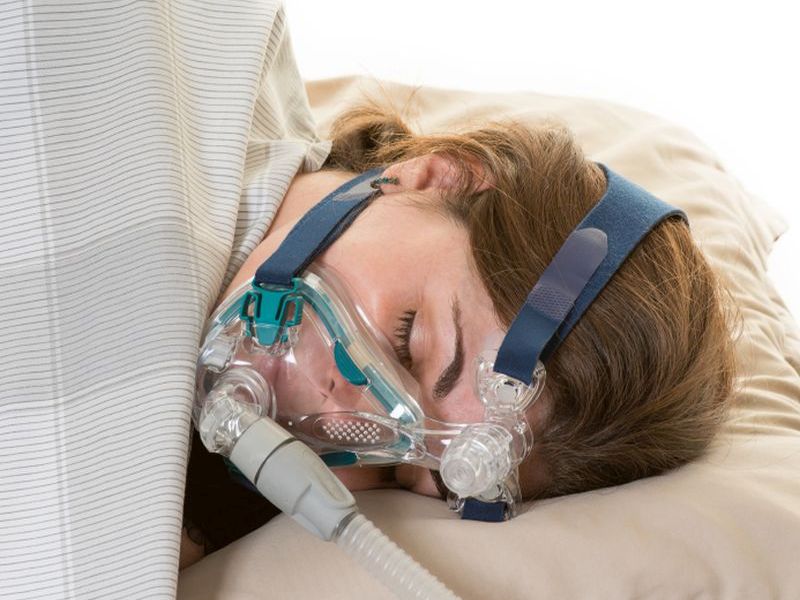

Videotaping Sleepers Raises CPAP Use
Viewing the tapes helped convince patients to stick with the sleep apnea treatment, study foundMonday, July 24, 2017

MONDAY, July 24, 2017 (HealthDay News) -- A video may be worth a thousand words for someone with sleep apnea.
Sleep apnea patients are more likely to use their continuous positive airway pressure (CPAP) machines after they see a video of themselves fighting to breathe at night, a new study says.
People with sleep apnea have pauses in breathing while they sleep. Left untreated, the disorder can lead to serious health problems such as depression, diabetes, heart disease and cancer. It also leads to daytime sleepiness that increases the risk of car crashes and other accidents.
"People who watched themselves gasping and struggling to breathe with sleep apnea used their CPAP machines three hours more per night than those who saw no video, and nearly two and a half hours more than those who watched a video of another patient with sleep apnea," said study leader Mark Aloia, a sleep expert at National Jewish Health in Denver.
"We really created a personal sense of urgency in these patients in order to change their behavior," he said in a hospital news release.
Sleep apnea isn't something you really notice in yourself, Aloia said. "I mean, you're asleep; you're consciously not aware of what's happening to you," he explained.
He and his colleagues wanted to find a way to convince patients of the urgency of their condition.
"The shocking part was that patients actually got very emotional," Aloia said. "Sometimes we'd have men, who had never really thought of themselves having a problem, being tearful."
Sleep apnea affects more than 20 million Americans, the researchers said in background notes.
Early results from the study were presented recently at the annual meeting of the Associated Professional Sleep Societies, in Boston. Research presented at meetings is usually viewed as preliminary until published in a peer-reviewed medical journal.
SOURCE: National Jewish Health, news release
HealthDay
Copyright (c) 2017 HealthDay. All rights reserved.
News stories are written and provided by HealthDay and do not reflect federal policy, the views of MedlinePlus, the National Library of Medicine, the National Institutes of Health, or the U.S. Department of Health and Human Services.
- More Health News on
- Sleep Apnea








































No hay comentarios:
Publicar un comentario